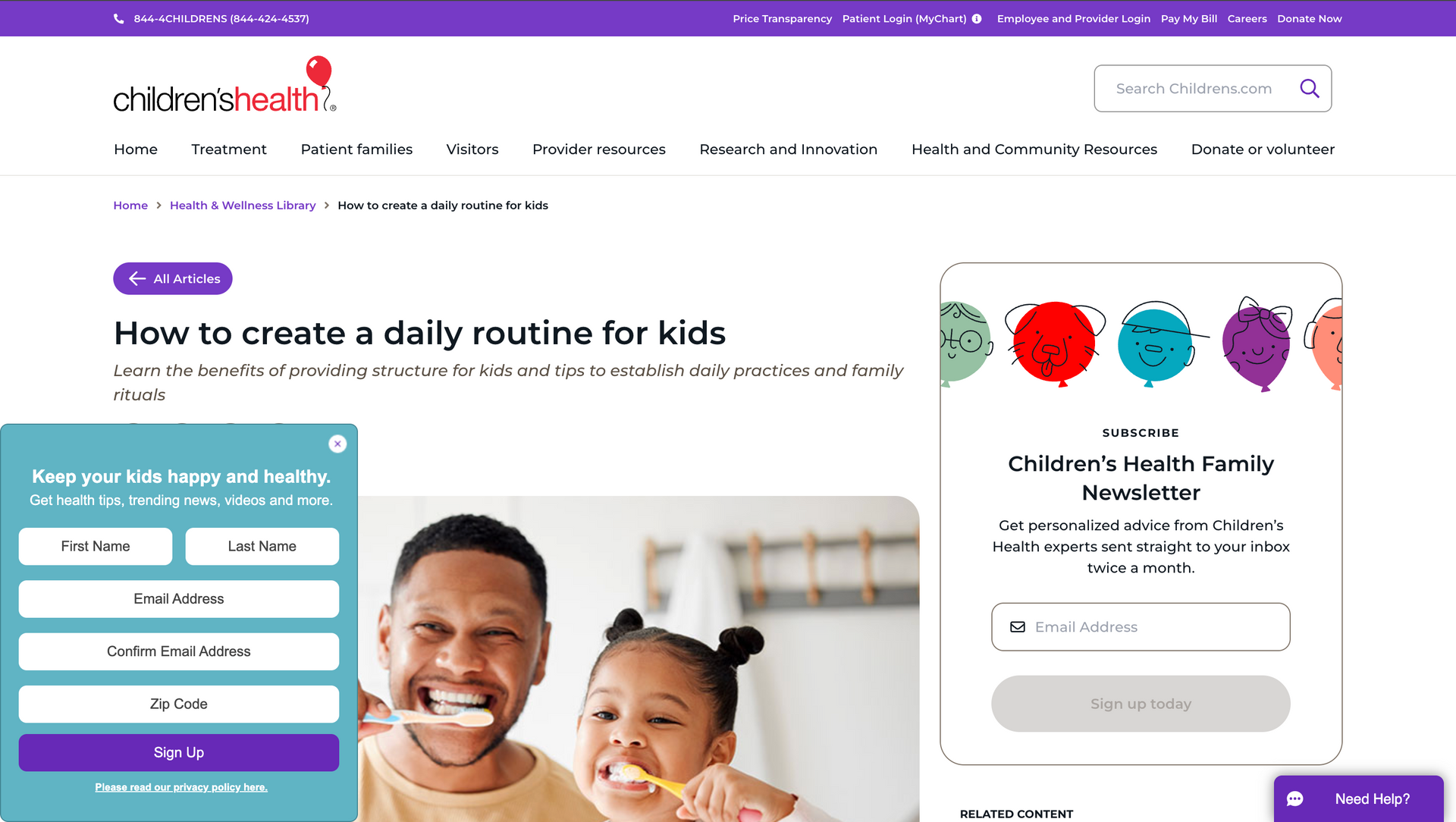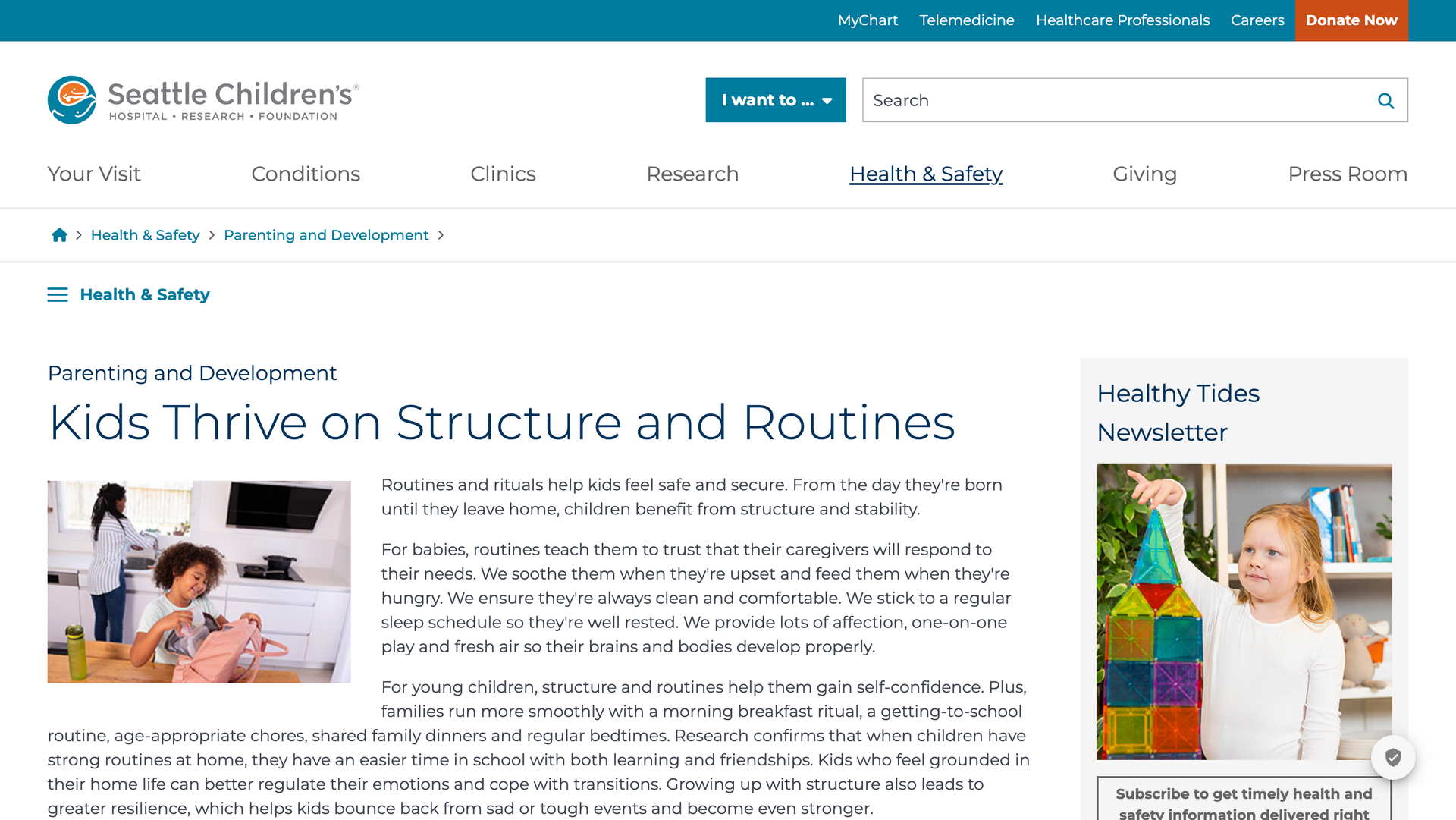The Power of Routines: Why Predictability Matters for Kids
Children thrive on knowing what to expect. Predictable routines provide a sense of safety, stability, and comfort that helps children feel secure in their daily lives.
While every family is unique, establishing consistent routines at home can support children’s emotional well-being, learning, and growth.
Why Routines Are Important
Routines create a sense of order in a child’s world. They help children:
- Feel safe and know what comes next
- Build self-discipline and responsibility
- Manage transitions with less stress
- Develop healthy habits like regular sleep and mealtimes
- Strengthen confidence by mastering daily tasks
When life feels predictable, children are less anxious and more confident in handling everyday responsibilities. Routines also make it easier for children to manage expectations because they know what is coming rather than being surprised or rushed.
Key Times to Use Routines
Not every moment of the day needs to be scheduled, but having consistency around certain parts of the day is especially helpful:
- Morning routines: Getting dressed, brushing teeth, and having breakfast sets a calm and prepared tone for the day. Including steps like packing a backpack or choosing shoes the night before reduces stress in the morning rush.
- After-school routines: Snack, homework, chores, and play help children shift from school mode to home life without chaos. This structure also gives them balance between responsibilities and downtime.
- Bedtime routines: A consistent wind-down process, such as bathing, reading, or quiet time, signals to children that it is time to rest. A predictable routine often leads to better sleep and fewer bedtime struggles.
Other routines, such as mealtime rituals or weekend family traditions, also help children feel connected and grounded.
Supporting Independence Through Routine
Routines give children opportunities to take responsibility for small tasks. Knowing what needs to be done allows them to prepare and complete steps without constant reminders. For example, a child who always clears their dishes after dinner will eventually do it automatically. Over time, this builds confidence, accountability, and independence. Caregivers can also use visual charts or checklists to give children a clear reminder of what steps to follow.
Flexibility Matters Too
While routines are valuable, flexibility is important as well. Families may have special events, travel, or unexpected changes. A routine that is too rigid can cause stress when things do not go exactly as planned. Allowing for adjustments teaches children how to adapt while still providing the comfort of a predictable structure. A good balance is consistency most of the time with an openness to change when needed.
How Caregivers Benefit
Routines support not only children but also caregivers. Predictability makes it easier to manage household responsibilities, reduces stress, and creates a smoother flow to the day. When children know what is expected, there are fewer power struggles and less resistance. Caregivers also save energy by giving fewer repeated instructions. Over time, routines turn into habits that benefit the entire household.
Final Thoughts
Predictability does not mean rigidity. Consistent routines simply give children a framework that makes the world feel safe and manageable. By creating simple, reliable patterns in daily life, caregivers help children build confidence, independence, and a greater sense of calm. These routines also support caregivers by reducing stress and encouraging smoother transitions throughout the day. When routines are steady but flexible, they create an environment where children and families can thrive.
Looking for more simple, supportive tools for the loved ones in your care? Enjoy these additional resources and explore our blog for ideas that help you nurture connection, one moment at a time. Or, Join our mailing list where we share more resources that accompany our blog posts.
Join Our Mailing List












